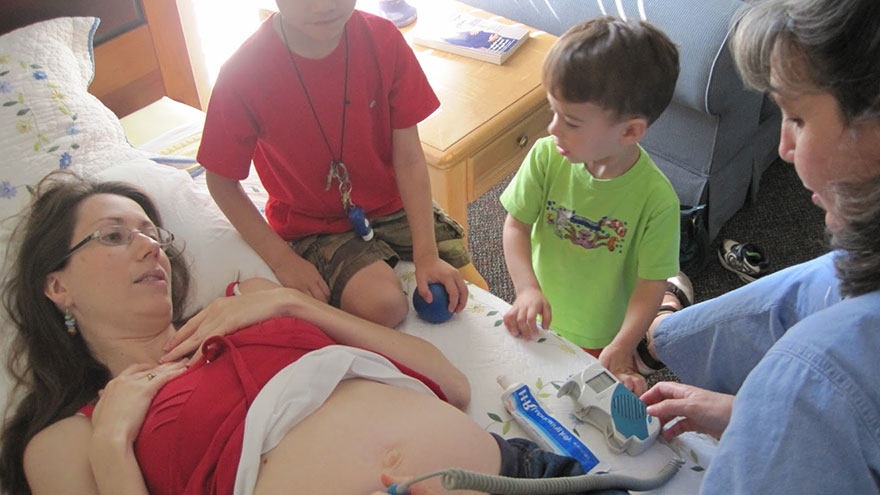How to Handle a Homebirth Emergency
Birth emergencies, which are rare, can happen whether you give birth in a hospital, birth center or at home. The difference is that when you experience an emergency while giving birth at home, you must be a more active participant in the situation.
The following steps will help guide you.
8 Steps to Handle a Homebirth Emergency

How to Prepare for an Emergency
1. Have a telephone nearby. In an emergency, you may need to call for help and it’s best that you know where the phone is.
Keep it on the charger or in a designated spot in the room you plan to labor and birth in. Keep it in a place where it cannot get tangled in bed sheets, wet from a birth tub or thrown on the floor underneath something.
2. Make sure that someone else, your partner or midwife, knows how to get to the hospital.
In an emergency, you may or may not be able to guide someone else. It is a good idea to have printed directions as well.
3. If you have a child who will be staying with you during your labor and birth, make sure that you have alternate arrangements in case of a transport.
Talk to a family member, friend or neighbor who is willing to come over immediately if needed.
4. Have an emergency bag packed in case you have to transport.
It doesn’t have to contain much, just a few essential items in case it is needed.
How to Handle an Emergency
5. Remain calm.
During any emergency, you should do your best to remain calm. If you are panicked, you will not be able to think or respond properly to questions asked or directions given. Panicking can also prolong or stop a labor pattern.
6. Trust your intuition.
Many times before an emergency even arises, your intuition will let you know that something doesn’t feel right or is going wrong. You may suddenly feel like you need to get out of the bed and squat or do a deep right-leg lunge. You may not always know the reasons for this, but if your intuition directs you to do something, do it. It just might save your life.
7. Trust your midwife.
Your midwife has been professionally trained in both normal and abnormal birth. She knows what to do when complications arise and emergencies like shoulder dystocia, deep fetal decels and hemorrhages happen. Trust what she tells you to do, even if it sounds strange.
8. Be willing to transport.
If your midwife recommends that you transport to a hospital facility, be willing to go. Homebirth midwives will not recommend this unless they feel it is a more stable environment for you and/or the baby.
Tips and Warnings
- Contrary to what many say, preparing for an emergency does not mean one will arise. It is better to be smart and prepare than find yourself in the midst of an emergency not knowing what to do.
- Make sure you interview a variety of midwives before hiring them. You need to develop a healthy and trusting relationship throughout your pregnancy.
You Might Also Like :: How to Hire a Home Birth Midwife

